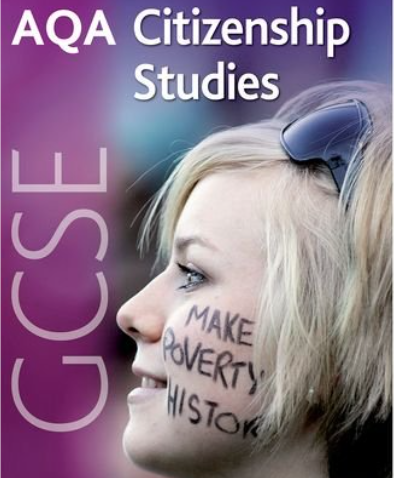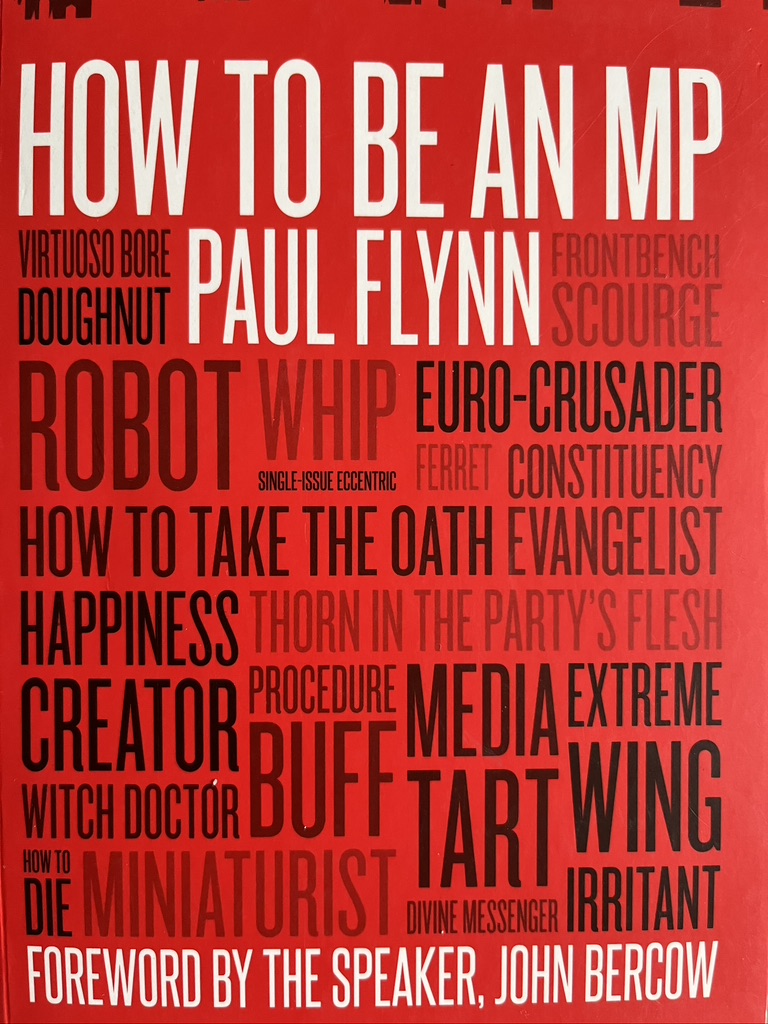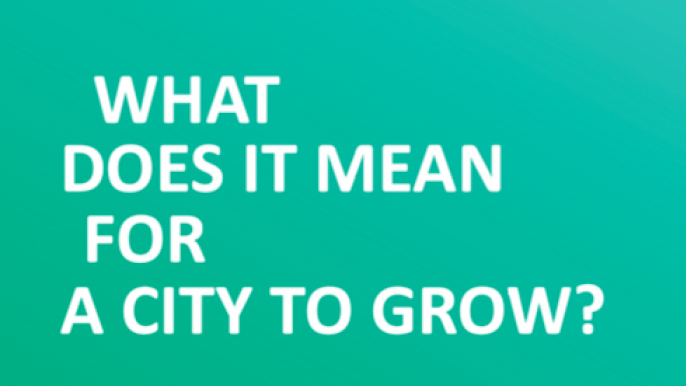I asked too many questions (again) yet I came away with a sense that the world of academia is not happy at the decisions the University of Cambridge and its colleges are taking in their name
It was an event open to all, and in return for writing out an in-depth set of responses to their earlier consultation, they invited me along. I also live-tweeted from the event’s presentations (but not the discussions due to the Chatham House Rule being invoked – there is only one rule) on the hashtag #FutureOfCambridge
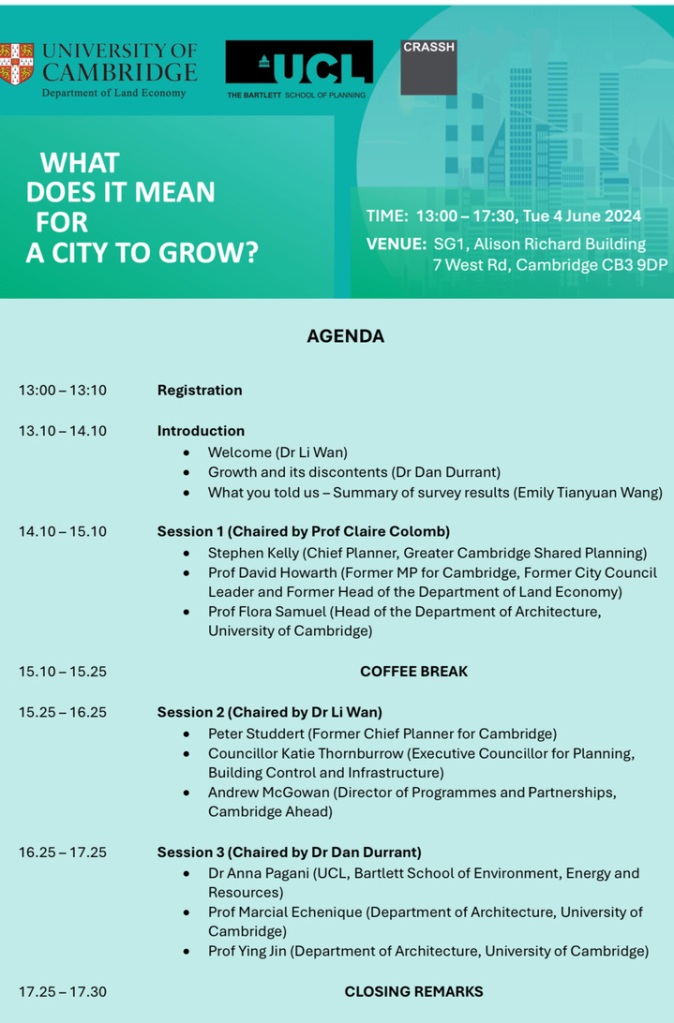
Above – the agenda, for which the slides from each of the presenters will be up in due course
It also meant I didn’t follow the fun and games of the general election campaign (*yawn*) today – a campaign in which the mainstream media are having an absolute shocker. In the second half of my previous blogpost I was particularly critical of the BBC’s Chris Mason. Then following someone throwing drink over the leader of a private company with limited liability, the media cranked into gear with what felt like faux-outrage quotations on one side accompanying photo-competition-style images of the incident. Followed by the hunt to identify the alleged perpetrator (who has since been arrested)
Above – proceedings are now live so please don’t comment on anything that could prejudice a trial.
Who should be the leading profiles based on *actual* electoral performance at the 2019 general election and the local elections that followed?
When you look at the results of the last general election, if you apply the OfCom guidance to the letter, then even under its previous name, The Green Party polled more votes and secured more seats in the Commons than the party TeamNigel ran.
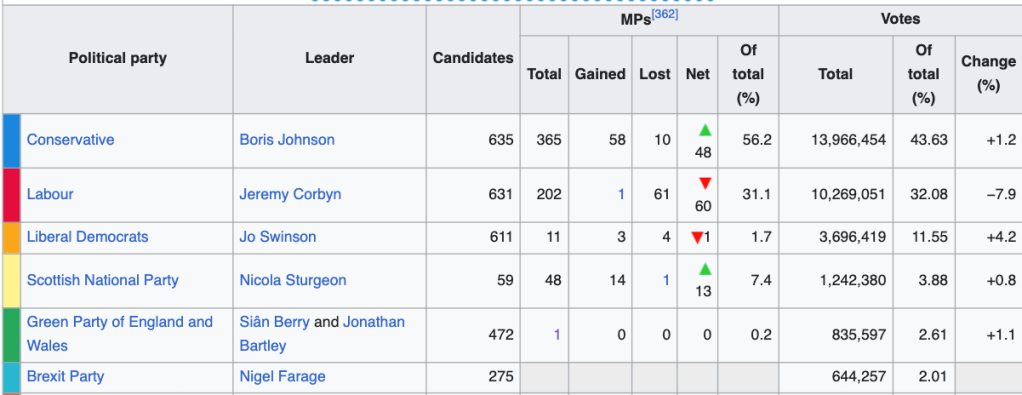
Above – from WikiP General Election 2019
In addition to that, The Greens have gained even more council seats at the last two sets of local elections.
Below – the Local Elections 2024
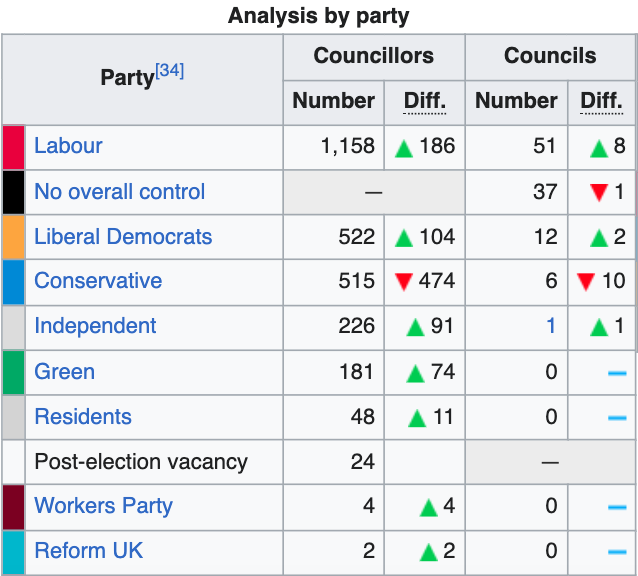

So despite gaining an *additional 241 councillors* in 2023, and an extra 74 councillors last month in the 2024 local elections, the BBC News/Current Affairs executives still chose to give TeamNigel top billing despite their zero MPs at the ballot box in 2019, and only two council seats (even fewer than the Workers’ Party) in the previous two sets of local elections nationwide.
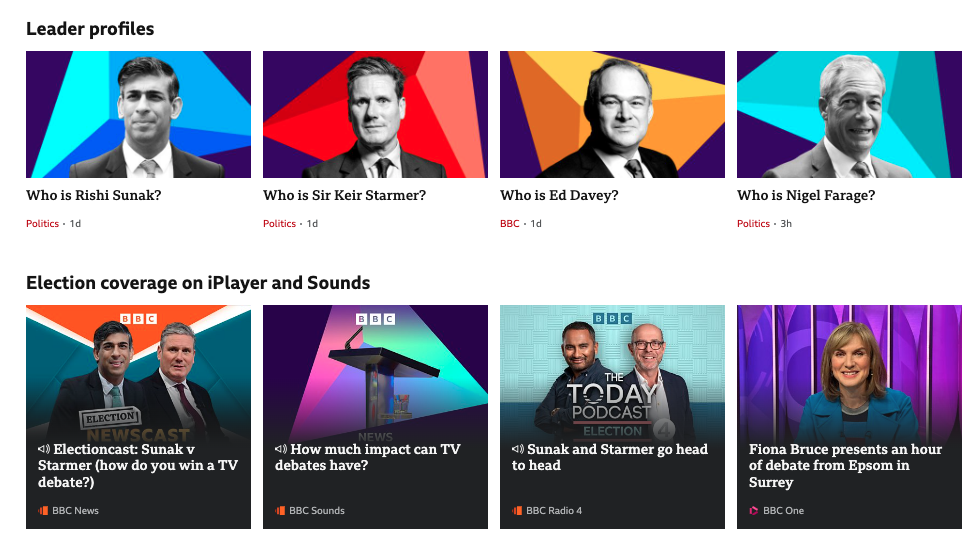
Above – undue publicity for the former U K I P Leader? How successful might The Greens be if they had been given even a fraction of that publicity by the BBC? (And which political parties would have taken the biggest hits?)
Back to the Future of Cambridge
The one question I wanted to ask but didn’t was this:
“What does it mean for a city like Cambridge to have people from all over the world who are our friends and neighbours, but who do not have the right to vote in the city they live in and pay taxes in?”
This matters because the adults that I am speaking to – whether in academia, in healthcare, in my neighbourhood who do not have the right to vote have, more often than not, children who are growing up here and who are going to school here. Why does that matter to me? Because I was one of those children whose parents were born on different continents (in places that were British Colonies at the time) and who were invited to move to the UK to train up and work in occupations that the city and country had a chronic shortage of staff in. In my case it was the local hospital. You might have heard of it. It’s called Addenbrooke’s.
Which is one of the reasons why the rhetoric of the general election debate around immigration concerns me. Because for decades the media has demonstrated it cannot handle the issue in a responsible manner, let alone get into the really deep and complex issues and histories within it. For example you’ll find little in the questions that shows any knowledge about the UK’s colonial history (for example the long tail of the First World War and the campaigns against the old Ottoman Empire) through to the more recent interventions in Iraq and Afghanistan. There’s little debate on co-ordinating overseas aid, the terms of trade in goods and services, and wider UK foreign policy and how all of these manifest themselves in towns and cities across the country – whether the supply of goods manufactured in sweatshop factories overseas, to the people from abroad working in occupations that are essential to the functioning of our public services.
The academics from abroad were razor-sharp on the need for transparency, accountability, and for propriety in politics and elected public office
Some of the most interesting conversations I’ve had of late in Cambridge have been with people who have experienced living abroad and engaging in systems of government that are very different to what we have in the UK. It’s all too easy to think that ours is the only system of democracy when this is the only one you’ve experienced. Even more so if culturally you’ve been educated to believe that ‘our way is the best way because [insert something from history – eg WWII or 1966]’. Which is what growing up in South Cambridge was like in the 1980s & 1990s. It reminded me of what Jon Alexander said at the Together Culture event last month.
“[Jon] mentioned that we’re brought up to ‘keep our heads down, get on with things, and not kick up a fuss’. Something that resonated strongly with me throughout my childhood in Cambridge. Never complain because adults will get angry with you and you’ll ‘get into trouble’. So I never did. Until it was too late.”
And that’s a strange thing to get used to – growing up in a world of absolutes, especially with exams culture where there was a right and wrong, good results and bad results, and teaching to the test. How do we ‘unlearn’ those toxic mindsets?
What doesn’t help is our present system of planning and development shows that actually the opinions of people barely matter. Our current political system and the existence of ‘safe seats’ is one example. Furthermore, former political journalist Michael Crick has been doing splendid work on exposing just how ‘fixed’ the system is for candidate selection in both the Labour and Conservative Parties in his Twitterfeed Tomorrows MPs. You can also listen to his more details comments on Novara Media here. The problem with vetting candidates so tightly is the big parties squeeze out any room for dissent. Eventually they surround themselves with ‘Yes Men’ (the recent stats for the Tories are excruciating) which builds in future problems because policies don’t get the critical scrutiny early on in the policy-making processes that nip problems in the bud.
Above. #DiversityFail.
What we did not get into – but perhaps should do at a future event: Governance structures
I was particularly interested in the critique of former Cambridge MP Prof David Howarth (LibDems 2005-10) on the current mess that is the governance of city and county.
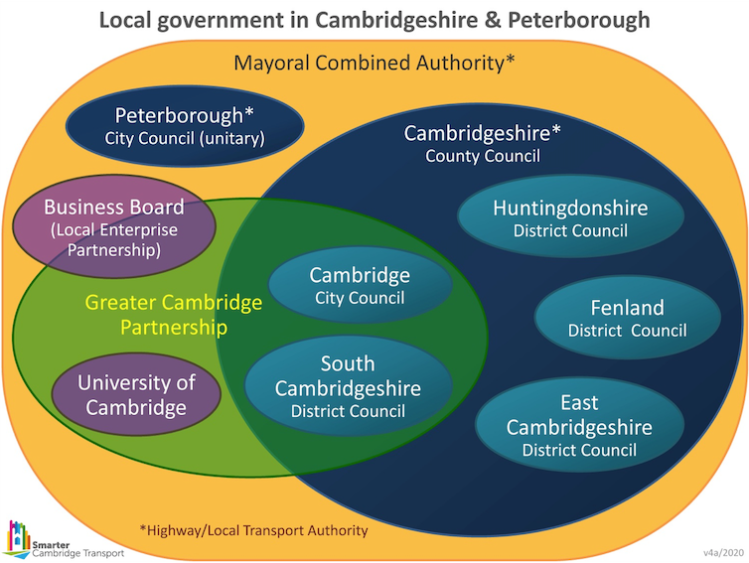
Above – ministers commissioned and signed off this structure
The Cambs Unitaries Campaign (which I support) is campaigning for a unitary model for Cambridgeshire.
The only way to explain the rationale behind the above model is to explain and embed the concept of Parliamentary Sovereignty as a core pillar of the British political system.
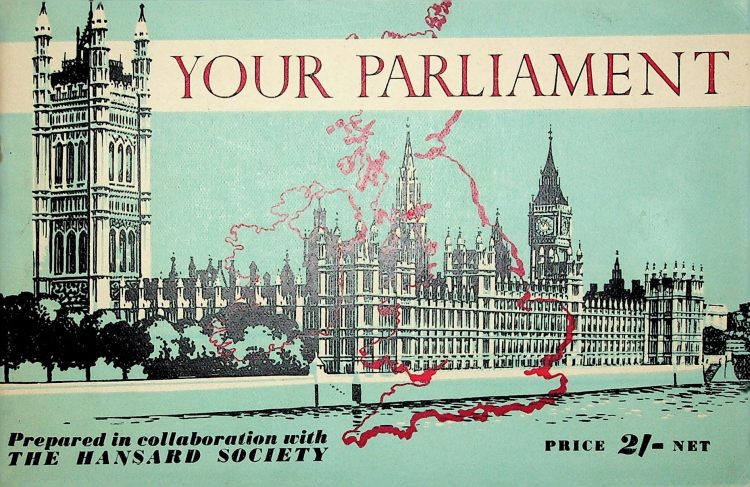
Above – Your Parliament from 1955 by the Hansard Society <- Have a browse!
Only once you understand the concept of Parliamentary Sovereignty do concepts such as Michael Gove’s ‘Case for Cambridge’ make sense. i.e. the ability of a Cabinet Minister to impose a new structure onto any town/city/geographical area of his choice.

Above – The Case for Cambridge – which is now in suspended animation following the retirement from parliamentary politics of its political sponsor Michael Gove.
“What happens next?”
The small matter of the general election in 30 days-and-counting time, after which we will see the opening of
The Cambridge Room
…which will provide (amongst other things) a much-needed space for this library of books and historical pamphlets on the history of Cambridge the town. Not least because it’ll provide a higher profile place for some of the essential historical documents that shaped our city – including (but not limited to):
- 1934 – The Davidge Report (The Cambridgeshire Regional Plan)
- 1950 – Holford-Wright Report (The Cambridge Development Plan)
- 1974 – John Parry Lewis Report (Doubling Cambridge’s size – abandoned)
- 2006 – Cambridge Local Plan
- 2018 – Greater Cambridge Local Plan
- Ongoing – Emerging local plan for 2031-40
- Greater Cambridge & Peterborough Transport & Connectivity Plan
And that’s not including proposals such as:
- The Cambridge Connect Light Rail proposals
- Rail Future East’s proposals for improving rail infrastructure in and around Cambridge
Both of the above are worth getting involved in, as is CamCycle (of which I am also a member) if you are interested in debating and solving Cambridge’s chronic transport problems.
If you are interested in the longer term future of Cambridge, and on what happens at the local democracy meetings where decisions are made, feel free to:
- Follow me on Twitter
- Like my Facebook page
- Consider a small donation to help fund my continued research and reporting on local democracy in and around Cambridge.
Below: Book recommendations: How to be an MP by the late Paul Flynn (one of my first Twitter followers), and also any student text book on GCSE Citizenship Studies. Those published before 2016 contain the rights UK citizens used to have before Brexit! These will cover the essentials of the UK’s political system (from England’s perspective), plus some insights into what being an MP involves.
